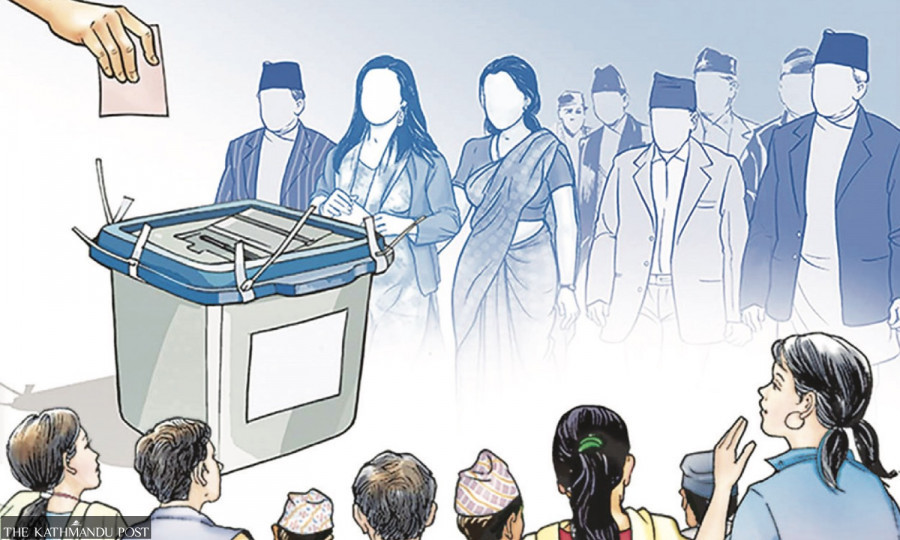Editorial
Crime and politics
By legitimising criminality, political parties have turned politics into a transactional enterprise.
The parliamentary elections are just around the corner, and people are watching what kind of candidates are going to be in the electoral fray this time. Candidates from the established political parties are recommended by the district level, and some of the proposed nominees have rightly raised many an eyebrow. Although these names are not final, they point to the general mentality of the political parties in fielding their candidates. Some of the leaders recommended have criminal charges against them, and some are still behind bars. The Nepali Congress district committees have recommended the names of individuals such as Mohammad Aftab Alam, who won from Rautahat-2 during the 2017 parliamentary elections despite accusations of criminal conspiracy and has been in judicial custody since October 2019; and Bijay Kumar Gachchhadar, who was convicted of corruption and hence ineligible for a parliamentary position. Nagarik Unmukti Party has recommended the name of Resham Chaudhary, who has spent almost the entirety of his tenure as a parliamentarian in jail.
The laws allow individuals facing criminal charges to contest the elections, but bars them from attending Parliament. They are allowed to contest elections based on the universal principle of criminal justice system that an individual yet to be convicted is to be considered innocent until proven guilty. This means that the individuals facing criminal charges are not legally restricted from contesting the elections. This is also in keeping in mind the fact that a host of political leaders and activists are often in the eye of the political storm, and imposing a blanket ban on their participation in electoral politics often leads to false charges just for the sake of inhibiting their participation. But political parties should not exploit this provision to field candidates who already have serious charges against them, including that of homicide and corruption, as this robs the people of their right to be represented by elected representatives.
If elections form the fundamental tenets of democracy, then the electoral process cannot be taken for granted, thereby taking the citizenry for a ride in the process. Some of the recommendations by the district committees of political parties make electoral politics look like a zero sum game with everything boiling down to numbers, thwarting the universal values of a democratic society. By legitimising criminality, the established political parties have been trying to turn politics into a transactional enterprise. In endorsing the purported criminality of their leaders, the political parties seem to have undermined the judgement of the people. It is also needless harassment of the people who vote for political parties and their candidates with the hope of change.
If the parties continue to be adamant in imposing their tainted leaders on the people during the upcoming election, it is incumbent on the people to reject such impositions and let the political parties know that their arrogance cannot go on forever. The recently concluded local elections have, in fact, shown that the people cannot be duped all the time. They have access to information and the ability to analyse what is good for them and what is being imposed on them. It is a clear case of the political parties taking the people's opinion for granted. This time, the people should show the political parties that they are not okay with being forced to choose individuals facing criminal charges, for the normalisation of criminality in politics runs the risk of damaging democracy in the long run.




 13.12°C Kathmandu
13.12°C Kathmandu














